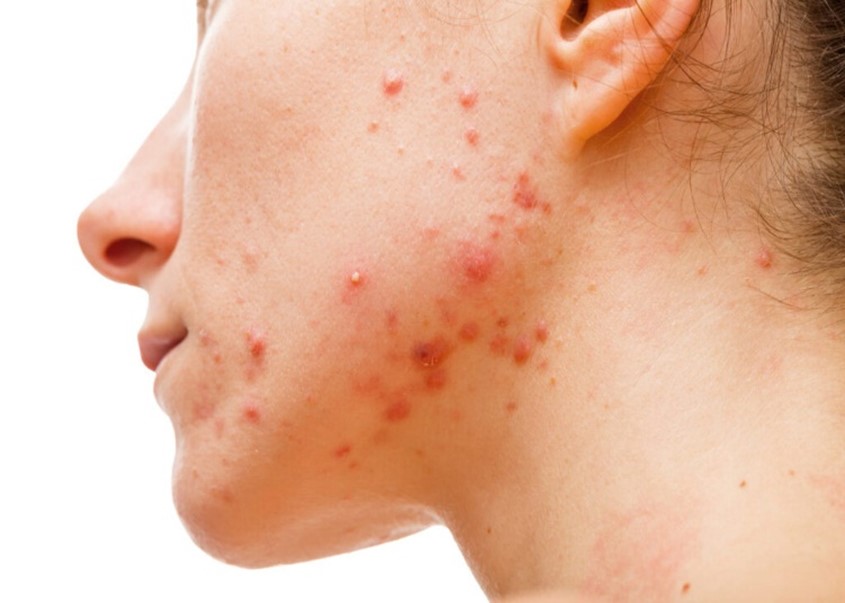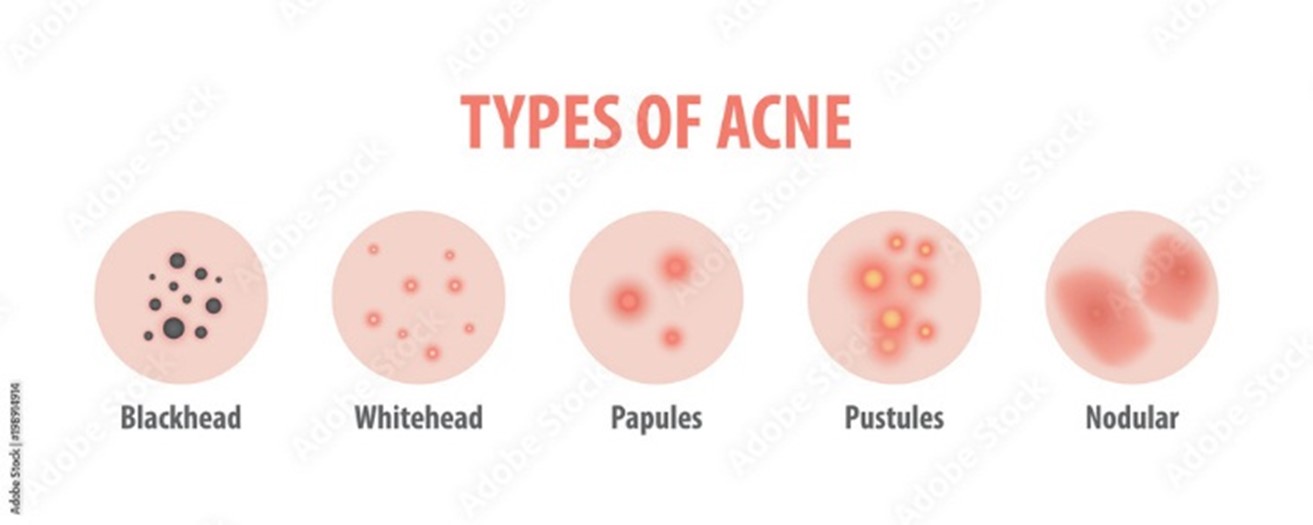It is a common skin condition that occurs when hair follicles are clogged with oil and dead skin cells. It often manifests as pimples, blackheads, whiteheads, and in more severe cases, cysts. Acne can appear on various parts of the body, but it is most commonly found on the face, chest, back, and shoulders.
1. Excess oil production: Increased production of sebum (oil) by the sebaceous glands can contribute to the clogging of hair follicles.
2. Dead skin cells: The shedding of dead skin cells can combine with excess oil, leading to the formation of plugs in hair follicles.
3. Bacteria: Propioni bacterium acnes, a type of bacteria, can thrive in the clogged follicles and contribute to inflammation and infection.
4. Hormones: Hormonal changes, especially during puberty, menstruation, pregnancy, and certain medical conditions, can stimulate the sebaceous glands and contribute to acne development.
5. Certain medications: Some medications, such as corticosteroids and certain oral contraceptives, can contribute to acne.
6. Diet: Although the relationship between diet and acne is complex and varies from person to person, some studies suggest that certain foods, such as dairy products and high-glycemic foods, may influence acne development in some individuals.

Blackheads (Open Comedones): These are small, dark spots that appear on the skin's surface. They are not filled with dirt but are open to the air, causing the melanin to oxidize and turn black.
Whiteheads (Closed Comedones): These are similar to blackheads but are covered by a thin layer of skin, giving them a white or flesh-colored appearance.
Papules: Small, red, and tender bumps without a visible center of pus.
Pustules: Pimples that contain pus at the center, appearing as a white or yellowish head.
Nodules: Large, solid, painful lumps beneath the surface of the skin, often requiring medical intervention.
Cysts: Deep, painful, pus-filled lumps that can cause scarring. Like nodules, cysts often require professional treatment.
